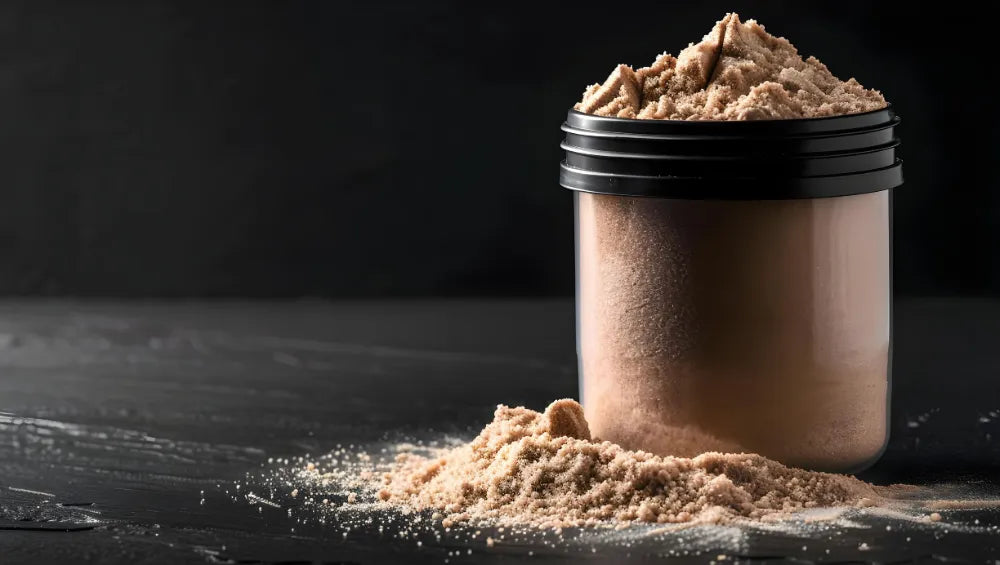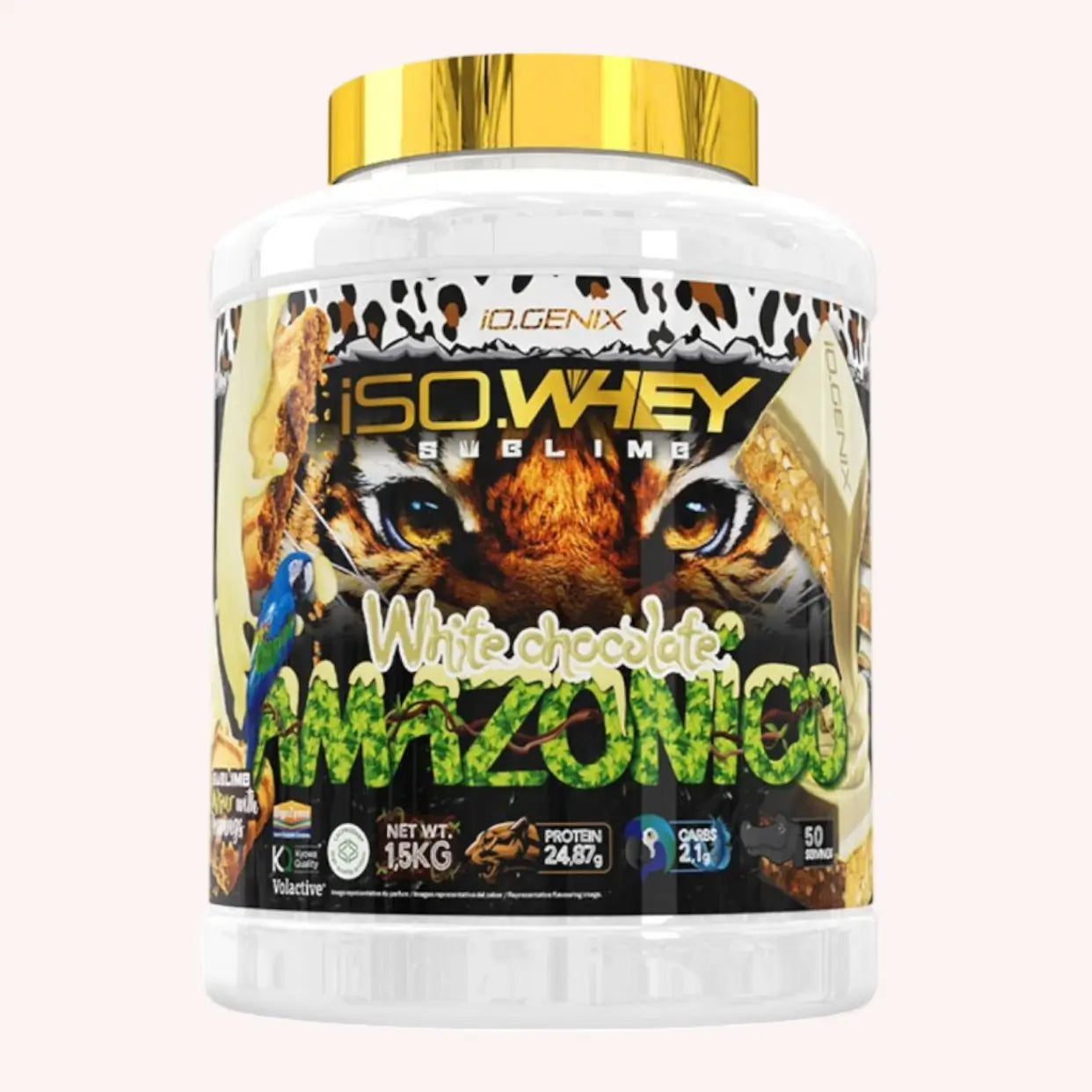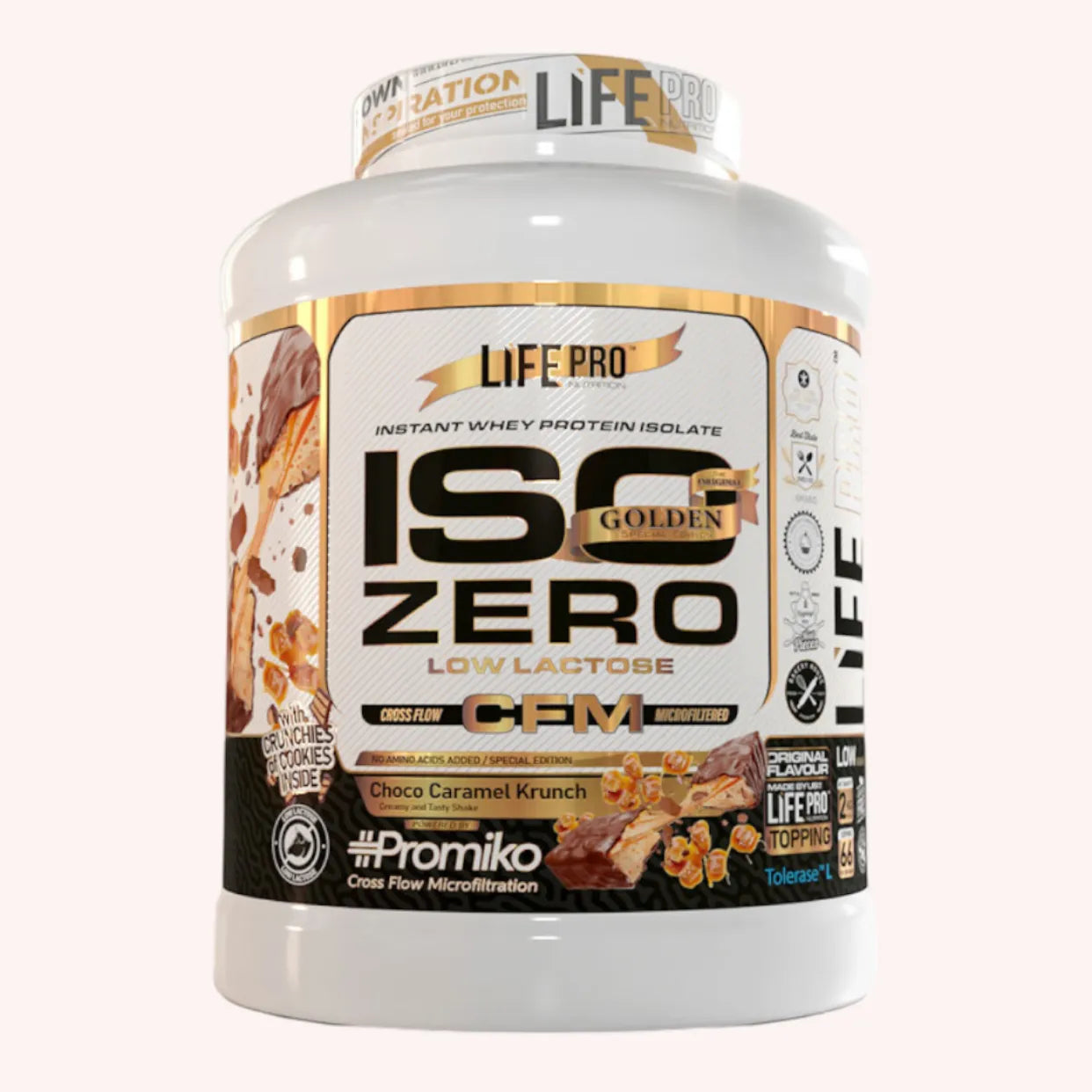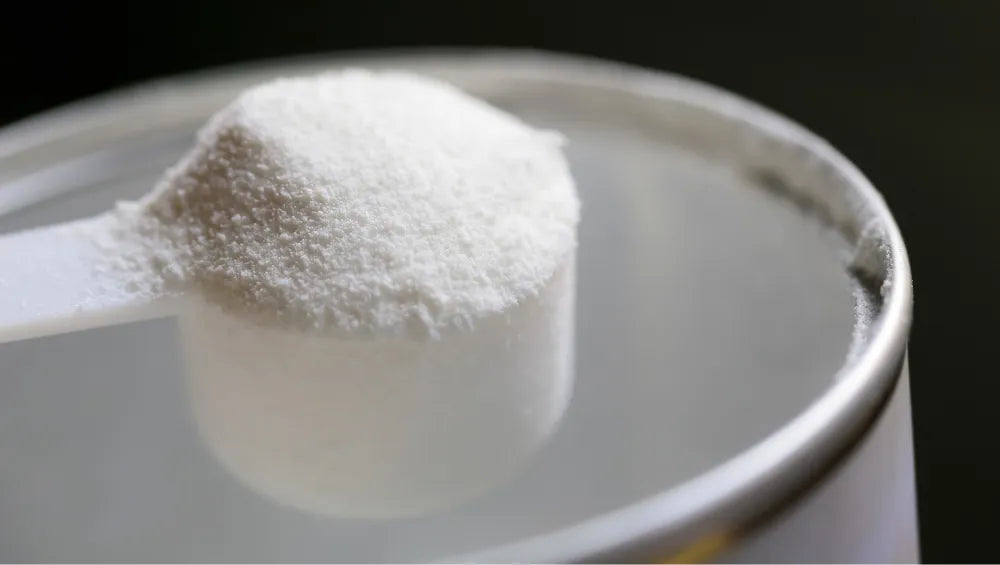Casein is a protein derived from cow's milk , often used in sports nutrition due to its effects on muscle development and recovery . It makes up about 80% of milk protein, with the remaining 20% being whey.
Casein is distinguished by its slow digestion , making it a particularly suitable supplement for athletes looking to maintain a constant protein intake over a long period of time. Here, discover what casein is, its different types, and its benefits for athletic performance.
What is casein?
Casein is a protein naturally present in milk, used primarily for its sustained amino acid release properties. Unlike whey, which is rapidly absorbed by the body, casein digests slowly, providing a continuous flow of amino acids into the bloodstream over a period of 6 to 8 hours.
It is therefore an ideal supplement for those who wish to optimize recovery and muscle building , particularly during their sleep.
The different types of casein
There are several forms of casein available as health supplements:
- Micellar Casein: This is the most natural and commonly used form. Its extraction preserves its nutritional qualities and allows for slow digestion . It is ideal for prolonged release of amino acids.
- Calcium Caseinate: This form is obtained through a chemical process that allows for faster dissolution in water. Although its nutritional quality is slightly lower than that of micellar casein , it remains an economical option for those looking for faster assimilation.
- Milk Protein Isolate: This protein powder contains a blend of casein (80%) and whey (20%), in the same proportions as in cow's milk . This type of protein is absorbed more quickly than micellar casein , while providing a prolonged supply of amino acids.
The benefits of casein for athletes
Casein has many benefits for people who exercise regularly, particularly as part of a muscle gain , muscle definition or weight loss program.
Muscle development
Thanks to its slow digestion , casein ensures a constant supply of proteins and amino acids, thus promoting muscle growth . In fact, it acts as an anti-catabolic, limiting the breakdown of muscle proteins during periods of fasting, especially at night.
Consuming casein before bed will help you maintain high amino acid levels while you sleep, a crucial time for muscle fiber repair.
Enhanced recovery
Casein actively participates in muscle recovery by facilitating the repair of micro-lesions caused by intensive training.
This property is particularly useful for athletes who train frequently.
Weight loss and satiety
Casein is also an excellent ally when it comes to weight loss . Its slow digestion provides a lasting feeling of satiety, reducing the urge to snack between meals.
This makes it an ideal protein to consume as a snack or before bed, especially as part of a low-calorie diet aimed at preserving muscle mass while reducing fat mass.
Casein and Whey: Complementary Proteins?
Often seen as competitors, casein and whey are actually complementary. Whey is a fast-absorbing protein , ideal for post-workout intake to provide an immediate boost of amino acids. Casein, on the other hand, is perfect for consumption outside of workouts, when your body needs a prolonged protein boost, such as before bed.
Rather than wondering whether you should consume casein or whey, a balanced blend of both proteins is probably the best solution. For example, consuming a shake containing both whey and casein allows you to benefit from the immediate effects of whey while enjoying the extended release of casein.
How to consume casein effectively?
Casein can be consumed in a variety of ways, depending on individual goals and preferences. It primarily comes in powder form to be mixed with water or milk, but it's also available in protein bars or capsules. Here are our top tips for optimizing your casein intake:
- Before bed: Taking a casein shake before bed helps maintain a constant level of amino acids during the night.
- Between meals: As a snack, casein helps limit cravings and maintain a regular protein intake.
- During a drying period: Casein is particularly useful during a muscle definition phase, because it reduces the feeling of hunger while preserving muscle mass .
How much casein should I consume?
The recommended dose varies depending on your individual needs and fitness goals. Generally, a 30g serving of casein is recommended per day. However, requirements can be adjusted based on training intensity and individual metabolism.
It is essential to accompany your casein consumption with a balanced diet adapted to your sporting goals.
Casein is a must-have protein for athletes looking to improve their performance and recovery. Thanks to its slow digestion , it provides a prolonged supply of amino acids, making it an ideal supplement for mass gain , muscle recovery and weight loss .
Whether you're in the muscle-building or cutting phase, casein can help you achieve your goals, provided it's consumed as part of a proper nutritional program.
Sources:
- Miller MJ, Witherly SA, Clark DA. “Casein: a milk protein with diverse biological consequences.” Proc Soc Exp Biol Med. : https://pubmed.ncbi.nlm.nih.gov/2236098/
- Tang JE, Moore DR, Kujbida GW, Tarnopolsky MA, Phillips SM. "Ingestion of whey hydrolyzate, casein, or soy protein isolate: effects on mixed muscle protein synthesis." J Appl Physiol. : https://pubmed.ncbi.nlm.nih.gov/19589961/
- Kim J. “Pre-sleep casein protein ingestion: new paradigm in post-exercise recovery nutrition.” Phys Act Nutr. : https://pubmed.ncbi.nlm.nih.gov/32698256/














